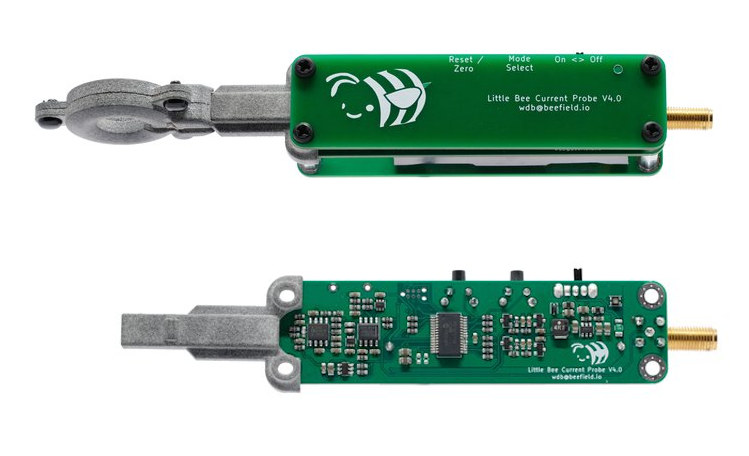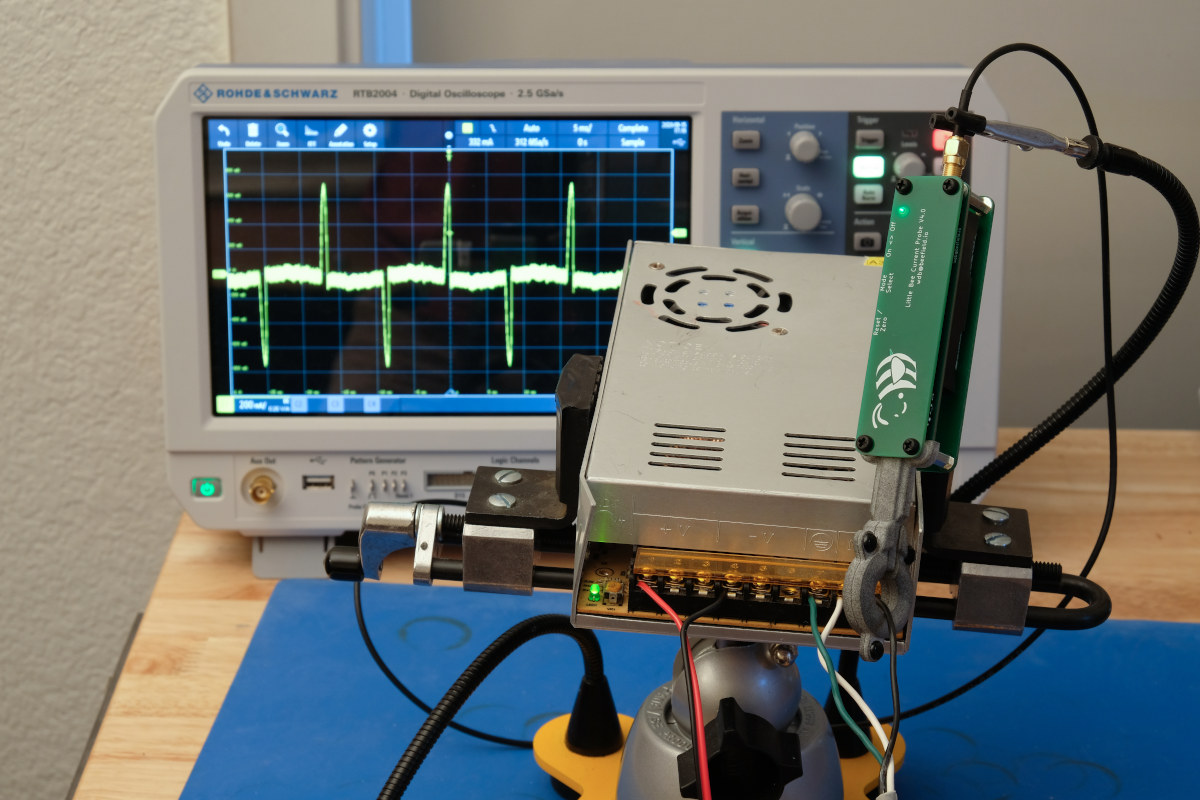Little Bee is an affordable, open-source hardware, and high-performance current probe and magnetic field probe designed to debug and analyze electronic devices at a much lower cost than existing solutions such as Migsic CP2100B or I-prober 520.
This type of tool is especially important for power electronics, which has become ever more important with electric vehicles, alternative energy solutions, and high-efficiency power supplies.

- Based on Anisotropic Magneto-Resistive (AMR) magnetic sensor.
- Adjustable bandwidth (10 MHz and 1 MHz)
- Adjustable gain (1x and 4x)
- Automatic zeroing
- SMA Output Connector for connection to any standard 1 MΩ impedance oscilloscope input
- Current sensing
- Bandwidth – DC – 10 MHz
- Sensitivity – 0.25 Volts/Amp
- Max Current – +/- 5 A
- Noise – 3 mA RMS at 10 MHz bandwidth, 2 mA RMS at 1 MHz bandwidth
- DC Accuracy – +/- 15%
- Insertion Impedance – 100 nH in parallel with 70 Ohms
- Maximum Wire Size – 4.25 mm unbroken, 10 mm end fed
- Magnetic Field Sensing
- Bandwidth – DC – 10 MHz
- Sensitivity – 0.2 Volts/Gauss
- Max Field – +/- 6 Gauss
- Noise – 4 mG RMS at 10 MHz bandwidth; 2.5 mG RMS at 1 MHz bandwidth
- Power Supply – Single AA battery good for a 4-hour on a charge

Little Bee simply connects to your oscilloscope to measure and visualize the current or magnetic field on the display of the oscilloscope.
The project is open-source hardware with KiCad hardware design files including schematics and PCB layout published on Github together with the firmware for the Microchip PIC16 MCU controlling the device.
Weston Braun launched the probe on Crowd Supply a little while ago, and with eight days to go, he managed to raise close to $15,000 so far, well above the $5750 funding goal. A pledge of $149 should get you a Little Bee probe with the current sensing attachment and an SMA-BNC cable for connecting to an oscilloscope. Shipping adds $8 to the US and $12 to the rest of the world, and backers should expect to receive their reward(s) sometime in April 2021.

Jean-Luc started CNX Software in 2010 as a part-time endeavor, before quitting his job as a software engineering manager, and starting to write daily news, and reviews full time later in 2011.
Support CNX Software! Donate via cryptocurrencies, become a Patron on Patreon, or purchase goods on Amazon or Aliexpress




